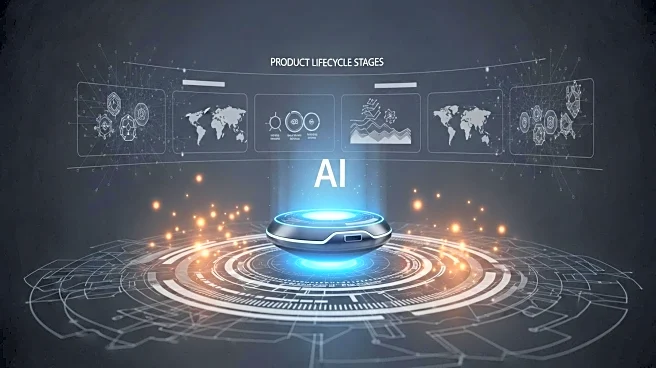What is the story about?
What's Happening?
PTC has launched a new Artificial Intelligence Assistant for its Arena product lifecycle management (PLM) and quality management system (QMS). This innovation aims to accelerate time to value for design and manufacturing teams by providing real-time, context-aware expertise and best practices through a conversational interface. The AI Assistant allows users to navigate engineering change orders, manage corrective and preventative actions (CAPAs), and maintain traceability and compliance. According to David Katzman, General Manager of Onshape and Arena, the AI Assistant acts as an expert guide, helping users with process steps and answering questions without needing to search documentation or contact support. The assistant is integrated directly into the Arena user interface and is powered by a comprehensive library of Arena Help materials.
Why It's Important?
The introduction of the Arena AI Assistant is significant for industries relying on efficient product lifecycle management and quality management systems. By streamlining workflows and providing immediate access to expertise, the assistant can enhance productivity and reduce time spent on administrative tasks. This development is particularly beneficial for global engineering teams, as the assistant supports more than 15 languages. The AI-driven approach to supply chain risk monitoring and component management further strengthens supply chain resiliency, which is crucial in today's rapidly changing market conditions. Companies using Arena can expect improved collaboration and faster product development processes, potentially leading to competitive advantages in their respective markets.
What's Next?
PTC plans to continuously update the Arena AI Assistant with each new Arena release, ensuring it remains aligned with the latest functionality and efficient working methods. The integration of Arena Supply Chain Intelligence (SCI) and Onshape-Arena Connection features will further enhance supply chain resiliency and streamline collaboration between mechanical engineers and supply chain partners. As the AI Assistant becomes more widely adopted, it may lead to broader changes in how companies approach PLM and QMS, potentially influencing industry standards and practices.
Beyond the Headlines
The deployment of AI in PLM and QMS systems raises questions about the future role of human expertise in these areas. While AI can significantly enhance efficiency, it also necessitates careful consideration of ethical and legal implications, particularly concerning data privacy and the potential for AI-driven decision-making to replace human judgment. As AI technology continues to evolve, companies will need to balance the benefits of automation with the need to maintain human oversight and accountability.
















